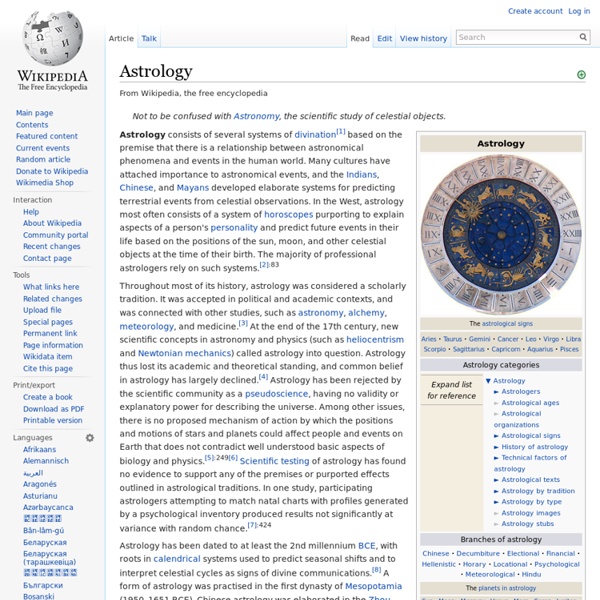



Anthroposophy Anthroposophy, a philosophy founded by Rudolf Steiner, postulates the existence of an objective, intellectually comprehensible spiritual world accessible to direct experience through inner development. More specifically, it aims to develop faculties of perceptive imagination, inspiration and intuition through cultivating a form of thinking independent of sensory experience,[1][2] and to present the results thus derived in a manner subject to rational verification. In its investigations of the spiritual world, anthroposophy aims to attain the precision and clarity attained by the natural sciences in their investigations of the physical world.[1] History[edit] The early work of the founder of anthroposophy, Rudolf Steiner, culminated in his Philosophy of Freedom (also translated as The Philosophy of Spiritual Activity and Intuitive Thinking as a Spiritual Path). By the beginning of the twentieth century, Steiner's interests turned to explicitly spiritual areas of research. Etymology[edit]
Mohini vashikaran mantra online Mohini Vashikaran mantra is a beat way to agree anyone to love you without making any extra effort. This mantra is basically for only the husband wife or girlfriend/boyfriend relationship. By using this mantra you can easily attract any of ladies toward you by just doing simple mantra. if you love any girl or have any desired girl, wants to attract any married woman, wants to attract your wife then you should use this mantra by using this mantra you will easily get that girl, lady or woman in your life as your loved partner Mohini vashikaran mantra for girl We all know that in today’s time it’s very tuff to convene a girl for friendship. Mohini vashikaran mantra for wives There are lots of husband who having problem with their wife that their wives are not paying attention in them and always just busy in their house works or in other actively along with that some husband have doubt on their wives that there wife’s in having any other affair that’s why she is not loving him.
Christian mysticism Christian mysticism refers to the development of mystical practices and theory within Christianity. It has often been connected to mystical theology, especially in the Catholic and Eastern Orthodox traditions. The attributes and means by which Christian mysticism is studied and practiced are varied and range from ecstatic visions of the soul's mystical union with God to simple prayerful contemplation of Holy Scripture (i.e., Lectio Divina). Etymology[edit] "Mysticism" is derived from the Greek μυω, meaning "to conceal",[1] and its derivative μυστικός, mystikos, meaning 'an initiate'. In the Hellenistic world, a "mystikos" was an initiate of a mystery religion. In early Christianity the term "mystikos" referred to three dimensions, which soon became intertwined, namely the biblical, the liturgical and the spiritual or contemplative. Definition[edit] Presence[edit] Presence versus experience[edit] Personal transformation[edit] Social constructionism[edit] Development[edit] Gospels[edit]
Black Magic Love Vashikaran Guru Magic (paranormal) Magic or sorcery is an attempt to understand, experience and influence the world using rituals, symbols, actions, gestures and language.[1][2][3][4] Modern Western magicians generally state magic's primary purpose to be personal spiritual growth.[5] Modern theories of magic may see it as the result of a universal sympathy where some act can produce a result somewhere else, or as a collaboration with spirits who cause the effect.[6] The belief in and the practice of magic has been present since the earliest human cultures and continues to have an important religious and medicinal role in many cultures today.[7][8] Magic is often viewed with suspicion by the wider community, and is sometimes practiced in isolation and secrecy.[4] The word "magic" derives via Latin magicus from the Greek adjective magikos (μαγικός) used in reference to the "magical" arts of the Persian Magicians (Greek: magoi, singular mágos, μάγος), the Zoroastrian astrologer priests of the ancient Persian Empire.
Classifieds, Free Classifieds, Online Classifieds, Free Ads | US Ads Citi Any Problem Then Call To our astrologer +91-9001213011, +91- 9929472306| Mail Us: info@blackmagicvashikaranguru.comOur website : www.blackmagicvashikaranguru.com Faust Faust is the protagonist of a classic German legend. He is a scholar who is highly successful yet dissatisfied with his life, so he makes a pact with the Devil, exchanging his soul for unlimited knowledge and worldly pleasures. The Faust legend has been the basis for many literary, artistic, cinematic, and musical works that have reinterpreted it through the ages. The Faust of early books—as well as the ballads, dramas, movies and puppet-plays which grew out of them—is irrevocably damned because he prefers human to divine knowledge; "he laid the Holy Scriptures behind the door and under the bench, refused to be called doctor of Theology, but preferred to be styled doctor of Medicine".[1] Plays and comic puppet theatre loosely based on this legend were popular throughout Germany in the 16th century, often reducing Faust and Mephistopheles to figures of vulgar fun. Summary of the story[edit] During the term of the bargain, Faust makes use of Mephistopheles in various ways. Sources[edit]
Black Magic Love Vashikaran Guru In India Esotericism Esotericism (or esoterism) signifies the holding of esoteric opinions or beliefs,[1] that is, ideas preserved or understood by a small group of those specially initiated, or of rare or unusual interest.[2] The term derives from the Greek, either from the comparative ἐσώτερος (esôteros), "inner", or from its derived adjective ἐσωτερικός (esôterikos), "pertaining to the innermost".[3] The term can also refer to the academic study of esoteric religious movements and philosophies, or to the study of those religious movements and philosophies whose proponents distinguish their beliefs, practices, and experiences from mainstream exoteric and more dogmatic institutionalized traditions.[4] Although esotericism refers to an exploration of the hidden meanings and symbolism in various philosophical, historical, and religious texts, the texts themselves are often central to mainstream religions. For example, the Bible and the Torah are considered esoteric material.[7] Etymology[edit] Definition[edit]